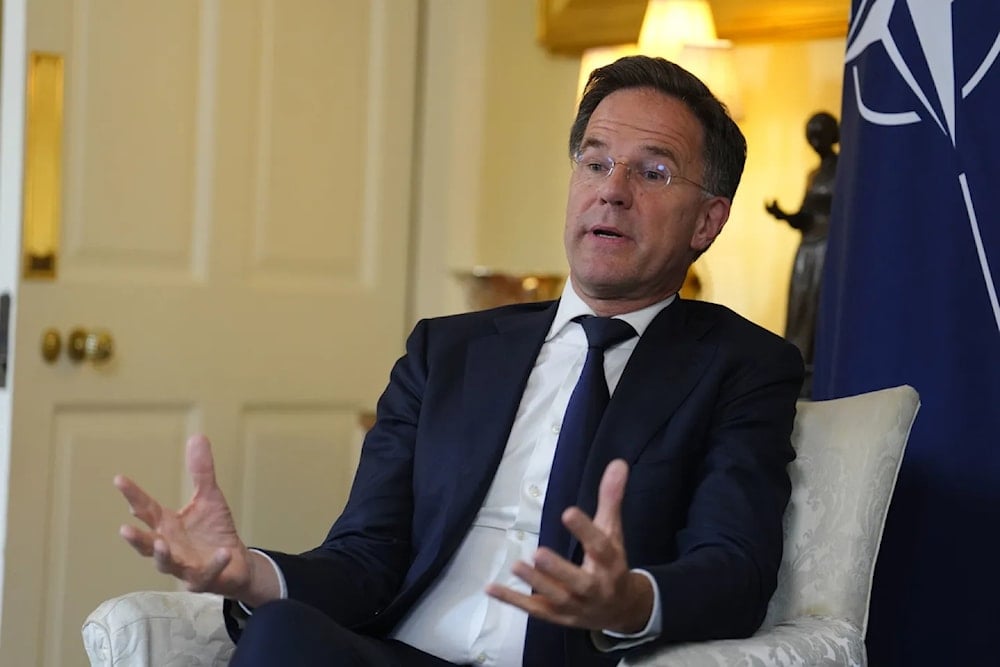Rutte warns to raise NATO military spending to 5% or 'learn Russian'
NATO's Rutte warns member states to hike defense budgets to 5% of GDP or face consequences, saying they should “learn to speak Russian” otherwise.
-

Nato Secretary General Mark Rutte talks during his meeting with Britain's Prime Minister Sir Keir Starmer at 10 Downing Street in London, June 9, 2025. (AP)
NATO military spending should rise sharply to confront global threats, NATO Secretary-General Mark Rutte warned, suggesting that member states failing to meet a 5% GDP benchmark might as well “learn to speak Russian.”
"If you do not go to the 5 per cent, including the 3.5 per cent for defence spending, you could still have the NHS…the pension system, but you better learn to speak Russian. That’s the consequence," Rutte said during a conference in London, according to The Telegraph.
The remarks mark a stark escalation in NATO rhetoric, with Rutte invoking what some are calling the "learn Russian threat" to pressure member states into adopting a significantly more aggressive military budget. The proposed spending includes 3.5% of GDP dedicated to defense and another 1.5% for infrastructure, the military industry, and security‑related investments, raising the total target to 5%.
In recent months, Rutte has consistently framed Russia and China as mounting threats to the alliance, urging NATO countries to reorient budgets away from social services and toward militarization. The call for a NATO defense budget of 5% of GDP represents a major shift from the longstanding 2% target.
NATO affirms need for 'quantum leap' in defense
In a related Associated Press (AP) news report, Rutte emphasized the necessity of a “quantum leap” in collective defense, calling for NATO members to multiply air and missile defense capabilities by 400% to counter what he described as a potential Russian attack “within five years.”
He noted that Russia currently outpaces NATO in producing ammunition, highlighting the urgency of dramatically scaling up capacity for armored vehicles, artillery shells, and air/missile defenses ahead of the NATO summit in The Hague later this month.
The increase comes amid what NATO officials describe as intensified activity from Russia near the bloc's eastern borders. The alliance's operations in the region have expanded, framed as part of its “containment of Russian aggression.” For its part, Moscow has repeatedly expressed concern over the alliance’s growing footprint and warned against Western militarization of the European continent.
The Russian Foreign Ministry said that while Moscow remains open to dialogue with NATO, it insists that any discussions occur on an equal footing. Russian President Vladimir Putin, in a recent interview with US journalist Tucker Carlson, dismissed claims that Russia intends to attack NATO countries, calling such warnings fabricated and politically convenient distractions. "Smart people understand perfectly well that this is a fake," Putin said.

 3 Min Read
3 Min Read










